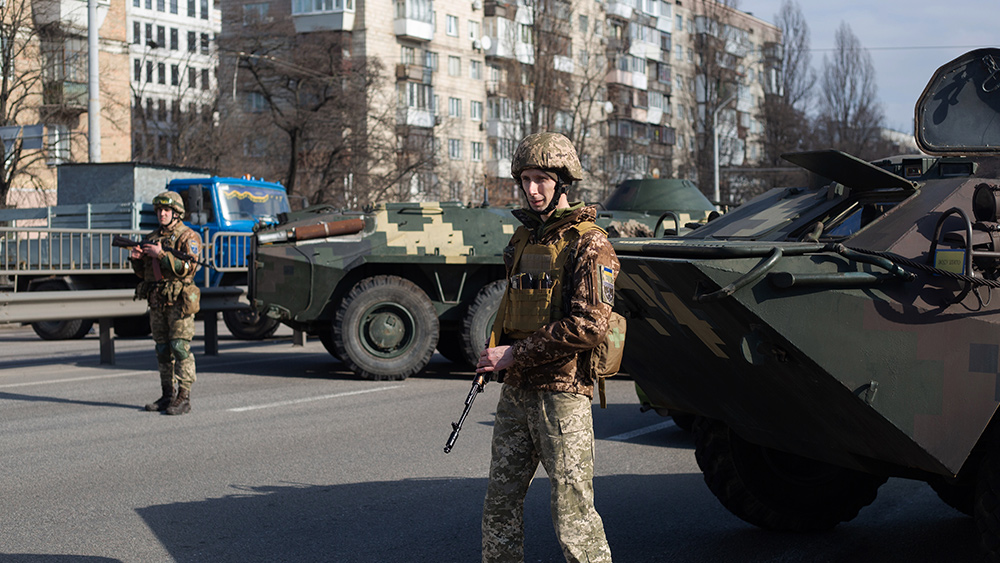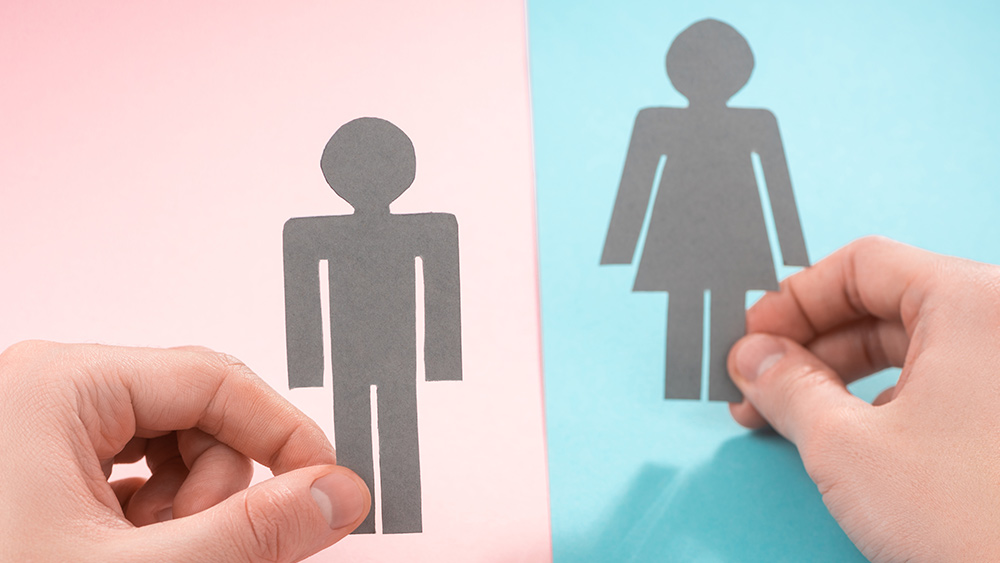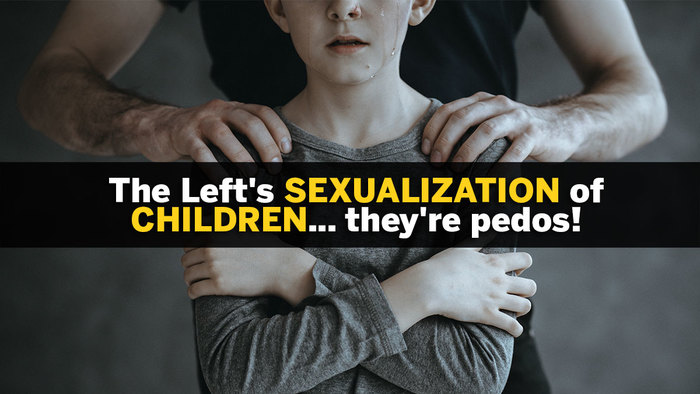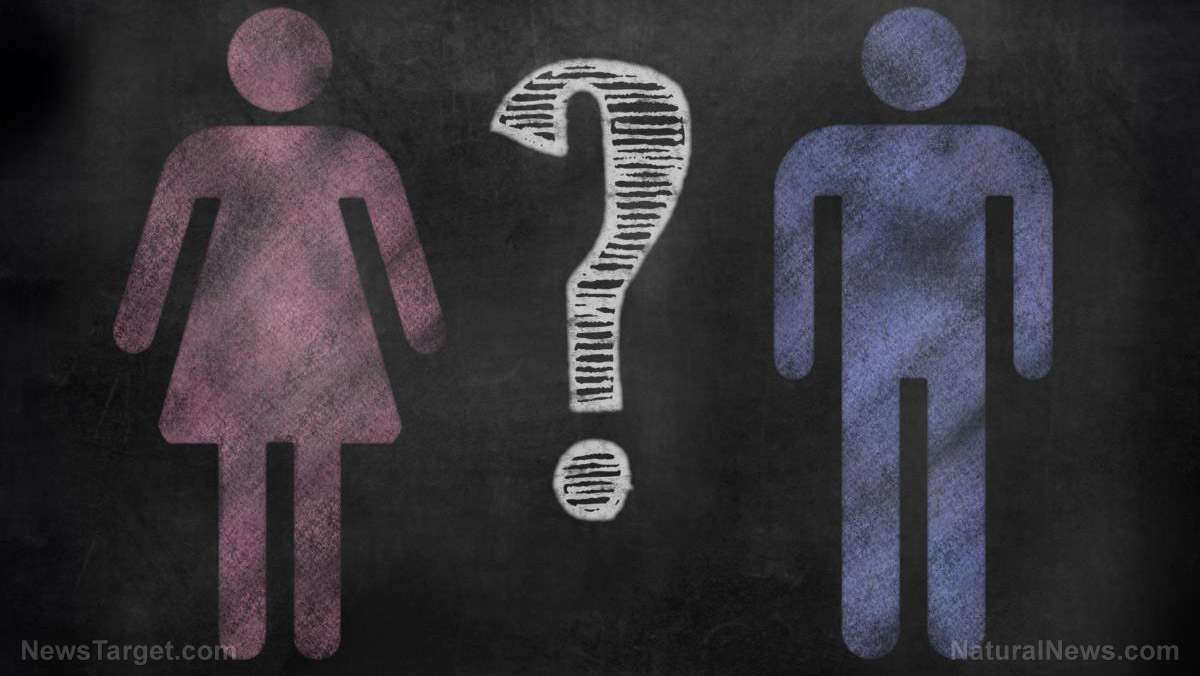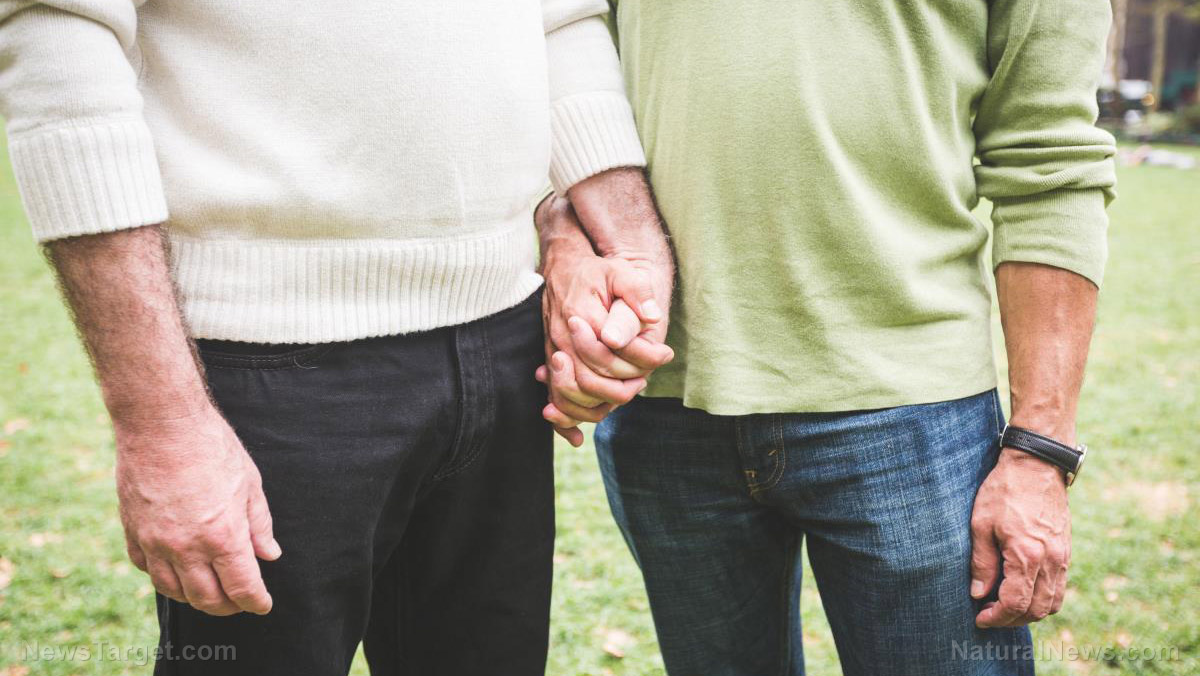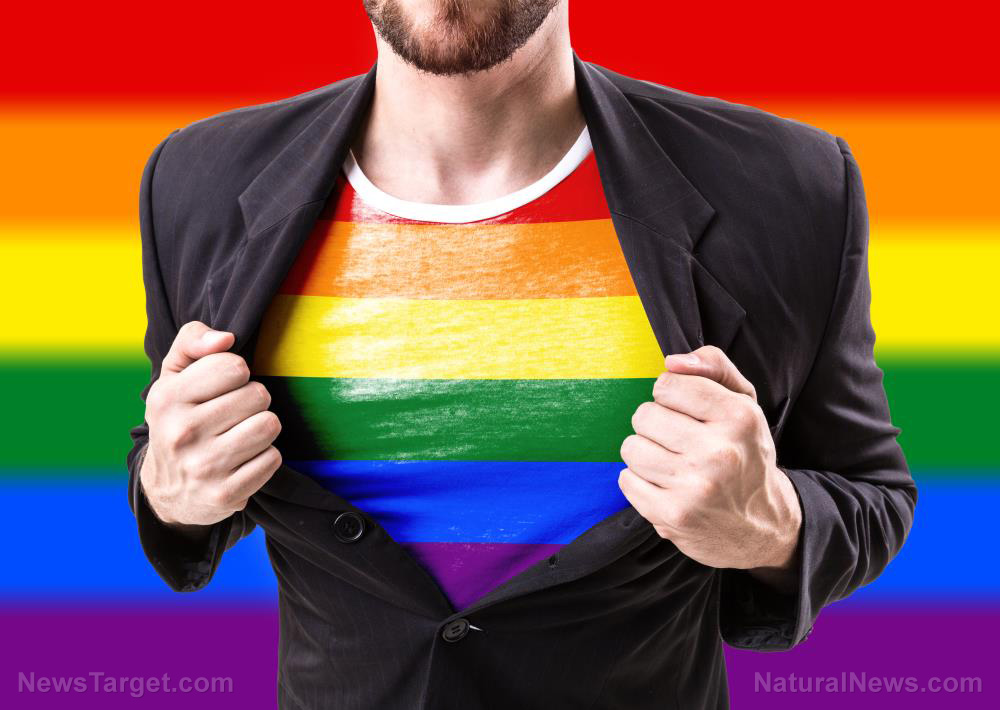Ukrainian military highlights UNICORN patch representing LGBT soldiers in its ranks
06/03/2022 / By Ramon Tomey
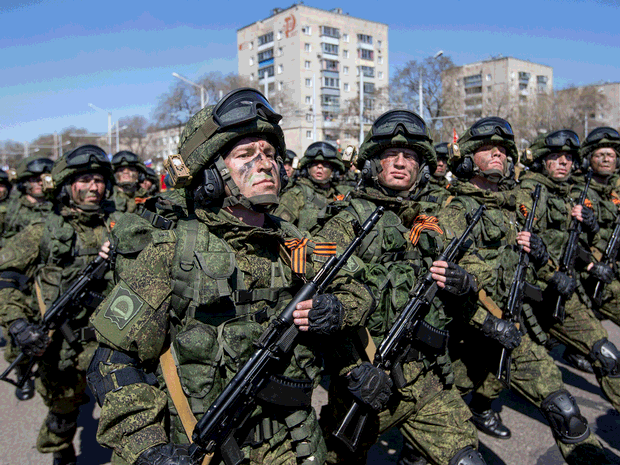
The Armed Forces of Ukraine showcased a military patch that featured a unicorn, which purportedly represents LGBT soldiers in its ranks.
A May 31 piece by Reuters elaborated on the unicorn patch worn by LGBT members of the Ukrainian military. The article mentioned that volunteer service members Oleksandr Zhuhan and Antonina Romanova were among those who wore the patch below the standard patch of the Ukrainian flag – symbolizing their unique status as soldiers and members of the LGBT community.
Zhuhan – an actor, director and drama teacher outside the uniform – explained the origin of the unicorn patch. It apparently stemmed from Russia’s 2014 annexation of the Crimean Peninsula, and the propaganda from Moscow claiming that there were no LGBT members in the military.
“Lots of people said [that time] there are no gay people in the army. So they [the LGBT community] chose the unicorn because it is like a fantastic ‘non-existent’ creature,” he said.
Zhuhan met Romanova, who identifies as non-binary, through theater work. “She” moved to the Ukrainian capital Kyiv following “her” displacement from Crimea in 2014. Both of them initially had no military training, but decided to enlist on the side of Kyiv after hiding in their homes when the war broke out in February.
“I just remember that at a certain point, it became obvious that we only had three options. Hide in a bomb shelter, run away and escape or join the Territorial Defense Forces. We chose the third option,” recounted Romanova.
“She” also claimed that their comrades in the Ukrainian military were accepting of their LGBT status: “There was no aggression, no bullying. It was a little unusual for the others. But over time, people started calling me Antonina. Some even used my ‘she’ pronoun.”
While initially uneasy, Zhuhan’s doubts were addressed after one Ukrainian commander made clear his refusal to tolerate homophobia. Another senior officer told him that “the only important thing on the front line is to be a good fighter.”
However, some Ukrainian members of the LGBT community have tried to take advantage of the confusion over their gender to avoid military duties. A male-to-female (MTF) transgender going to Poland named Judis was ordered to go back to the front lines and fight after Ukrainian border guards determined that “she” is a man following a physical examination.
Twenty-four-year-old MTF transgender named Alice, who hails from the town of Brovary near the Ukrainian capital, was also refused passage to Poland. Along with “her” 21-year-old partner Helen, Alice was deemed as male and told to return to the frontlines by border guards.
Hype surrounding unicorn patch follows eschewing of Azov-linked insignia
The Reuters report about the unicorn patch used by Zhuhan and Romanova came a day after the neo-Nazi Azov Battalion dropped the wolfsangel or “wolf’s hook” symbol. The battalion dropped the long-time symbol, which had close ties to Adolf Hitler’s Nazi Party, in favor of the golden trident – Ukraine’s national symbol.
Originally established in 2014 as a volunteer regiment to fight against the republics in eastern Ukraine’s Donbas region, the Azov Battalion was subsequently incorporated into the National Guard of Ukraine at the behest of former Ukrainian President Petro Poroshenko. The battalion met its end in May after weeks of Russian attacks at the Azovstal steel plant. Several members were killed, while many others surrendered to Russian forces. (Related: Hundreds of Azovstal fighters in Ukraine surrender to Russian forces as Putin shakes up military leadership.)
However, the battalion was purportedly revived – with new Azov recruits sporting the golden trident patches. Maksim Zhorin, the unit’s new commander, said the latest iteration of the Azov Battalion was formed “on the same principles and ideological basis as the legendary Azov regiment.”
The wolfsangel is a historic heraldic symbol with roots in wolf traps used in medieval Europe. The Nazis under Hitler used it as an insignia, appearing on the uniforms of several Schutzstaffel divisions. Given this link to Nazism, the Azov Battalion’s use of the wolfsangel on its uniforms “helped perpetuate Russian propaganda about Ukraine being in the grip of far-right nationalism,” the Times reported.
Russia Today (RT), however, proved that the battalion’s ties to Nazism were indeed real and not just simply propaganda.
“Footage of the surrendering combatants coming out of the [Azovstal steel] plant showed many of them sporting tattoos of swastikas and other far-right symbols. Nazi-related items and literature have also been discovered inside the steel plant, and at Azov bases in the Donbas [region] that have been captured by Russia,” RT reported.
Watch this RT report about the Azov Battalion’s revival and rebranding.
This video is from the High Hopes channel on Brighteon.com.
More related stories:
Washington Post finally admits what role the “far-right” Azov Battalion is playing in Ukraine.
Sources include:
Submit a correction >>
Tagged Under:
Armed Forces of Ukraine, Azov Battalion, Azovstal steel plant, conspiracy, culture wars, deception, left cult, LGBT, neo-Nazi, propaganda, Russia-Ukraine war, Territorial Defense Forces, unicorn insignia, unicorn patch, wolf's hook, wolfsangel, WWIII
This article may contain statements that reflect the opinion of the author
RECENT NEWS & ARTICLES
COPYRIGHT © 2017 GENDER NEWS




